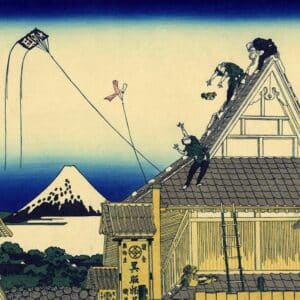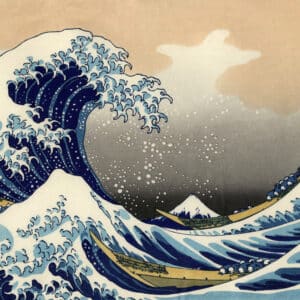Many Japanese distributors, importers, and agents in Japan do not have English-language websites.
When trying to determine if a Japanese distributor or other sales partner in Japan is the right fit for your company, it’s easy to ignore companies that don’t have much English on their websites.
This is a big mistake.
In our experience, there is no relationship between having an English-language site and being an effective distributor.
The best distributors are focused on their customers, who are Japanese, not on attracting foreign companies who want to do business with them so they have little need to spend the time and money required to create a fancy English website.
This does not mean that they do not speak English, though.
In fact, if a company is already distributing one or more non-Japanese products, they will have staff who can speak English and who are accustomed to doing business with foreign companies, regardless of whether or not their website is in English.
Let me give you an example from a client project that focused on identifying potential distributors in Japan for a client selling hand tools used by contractors and other professionals.
One of the best prospects we found for this client was company “K”. We found “K” by identifying foreign brands of hand tools common in the Japanese market and seeing who distributes them.
We soon determined that “K” is one of the top distributors of imported hand tools in Japan. But you wouldn’t know this by looking at the English-language pages on their site. These pages provide no listing of the foreign brands they carry and little information on their distribution business.
Instead, the English-language content on their site focuses almost entirely on their export activities, leading one to believe that this is the main focus of their business. Only by looking at their Japanese-language site can you see the whole picture.
More on this here: Do Japanese Distributors Speak English?
Do not judge Japanese distributors based on their website
Many Japanese distributors do not have fancy websites.
This is because they are selling primarily to other businesses with whom they already have an existing relationship, so there is little need to create a site that is eye-catching or incorporates the latest design bells and whistles.
We also find that the information on their sites is not always kept up to date.
And, when we reach out to distributors on behalf of clients, we are often surprised to learn key facts about the distributor’s business that are not on their site such as large customers that are selling to or new suppliers that they are now representing.
The lesson here is that a fancy website, or the lack of such a site, should not be used to judge whether or not a distributor can effectively distribute your products.
What are the best ways to screen potential Japanese distributors?
We recommend that you focus on the following:
1. The size of the distributor
Even if they are privately held, many Japanese distributors will indicate on their website how many employees they have or give their annual turnover.
You should consider companies that aren’t too small or too large.
If the company is too small, they probably won’t have the sales and marketing muscle needed to get your products into the right channels.
If the company is too large, your products may not get the attention they deserve.
2. The location of the Japanese distributor
In almost all cases, your best bet will be a distributor located in either the Tokyo or Osaka metropolitan area. Be wary of potential distributors located in outlying prefectures. These are usually small companies lacking the resources to open an office in Tokyo or who are only doing business in their local area.
I have come across manufacturers enjoying some success through an agency of distributor located outside Japan. Such agencies are usually run by Japanese nationals living abroad who have connections back to companies located in Japan.
These firms may provide an initial path into the Japanese market but often just add another layer to the distribution chain, making the price in Japan higher than it needs to be.
We are often asked if there are distributors out there who can cover all of Asia, including Japan.
We have come across very few companies like this over the years.
Japan is a lot different from other markets in Asia so you will need a distribution partner in Japan with an intimate understanding of the Japanese market and the relationships to make your products successful.
This typically means a Japanese company, based in Japan, and focused entirely on selling to customers in the Japanese market.
3. Other products that the distributor handles
The distributor’s current portfolio is one of the best ways to determine whether the distributor will be a good fit for your products.
When we are identifying potential distributors for clients, we find that the ideal distributors are usually companies that work with a relatively small number of suppliers and that are already selling complementary products.
In our experience, distributors who handle competing products are unlikely to be interested.
More here: Should I approach my competitor’s distributors?
Distributors already selling complementary products will also be the most interested in selling your products because adding these products to their portfolio will give them something new that they can sell to their current customers — in other words, additional revenue opportunities.
I would also be wary of distributors that represent too many suppliers. These distributors often function mainly as “order takers”, doing little proactive marketing of the products they sell.
At the same time, distributors who only handle one supplier are typically not good candidates as they are too tightly linked to that supplier and, thus, rarely interested in representing another supplier.
4. Who the Japanese distributor does business with
Many distributors will list their main customers on their website. Ideally, you want to see end users, wholesalers, and retailers listed that make sense for your products.
For example, if you sell consumer electronics, your ideal distributor will have existing relationships with large retail chains like Yodobashi Camera, Yamada Denki, and Bic Camera.
If you sell B2B products like laboratory equipment, you would want a distributor who is already selling other equipment to the large national research institutes and major corporate R&D labs in Japan.

We Can Connect You With The Right Importers, Agents & Distributors In Japan
Our decades of experience, deep network of contacts, and unique 3-step FAST Formula™ have helped 450+ companies find the right sales partners in Japan.
Companies selling everything from highly specialized B2B, medical, industrial, technical, and scientific products… to all types of consumer goods. Click here to see our track record
So if your products are right for the Japanese market, there’s a very good chance we can help you connect with Japanese sales partners who speak English… know your industry… and have a strong track record of selling products like yours.
Click on the button below to learn more.
